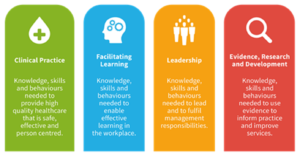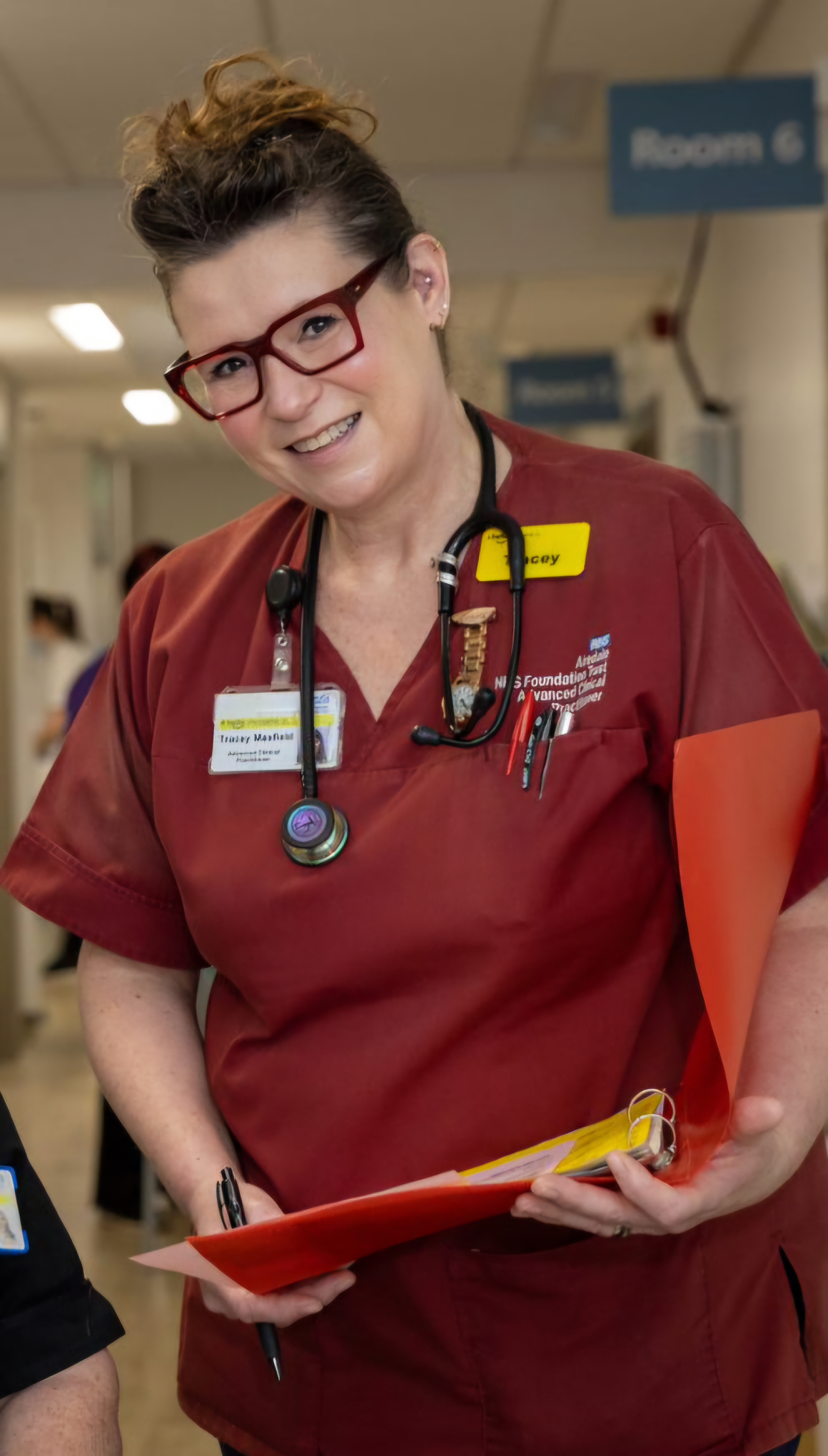Advanced Practitioners in the patients journey
Advanced practitioners can be at multiple touch points on a patients journey and different settings such as an acute hospital, community, primary care, social care, general practice and other areas.
This would be similar to the settings you work in as a healthcare professional before qualifying to the higher level of an advanced practitioner. Although their academic pathway will have reflected the multiprofessional framework the clinical delivery can significantly vary.
There are many statutory health and care professions that can qualify to this level of practice through the relevant routes in which includes nurses, pharmacists, paramedics, midwifery and other allied health professionals (2). As an advanced practitioner general guidelines suggest you could be working at a band 8a once qualified and a band 7 while training (4).

Four Pillars of Practice needed as an Advanced Practitioner
Skills and knowledge need to be developed as part of the training towards this level of practice and maintained throughout your career. There are four common themes to create standardisation for anyone working at this level however it is a complex area therefore supervision and regulation is necessary and will often be multiprofessional. To find out more information please follow this link Multi-professional framework for advanced practice in England (2017) – Advanced Practice (hee.nhs.uk)
The four pillars of practice include:
Clinical practice
Clinical practice which is ensuring you are working in line with your professional body and scope of practice. You should understand your role within the care of the patient and seek help from others when needed.
As part of your clinical practice good communication skills should be used with colleagues, patients and families to explain clinical reasonings for the care provided. This leads onto working collaboratively as a multidisciplinary team which is key within healthcare to provide the best care possible for patients.
As an advanced practitioner you need to understand your broadened level of responsibility and autonomy specifically when working with complex situations. Furthermore, becoming a clinical role model to support the development of care to patients based on health needs.
Leadership and management
Leadership and management are important for leading the plan for patients care, for example you could be the most knowledgeable on the specialty due to your training in advanced practice. Healthcare is huge for multidisciplinary working therefore effective relationships and understanding everyone’s individual role is vital.
As part of a good leader within healthcare a person-centered approach should be adopted while sharing your knowledge to allow the patient to make an informed decision. A final point on this pillar of practice is managing unfamiliar, complex and unpredictable situations which is key for advanced practice due to you being the professional who is qualified to deal with this meaning you will likely lead and manage these situations with input from other professionals.
In the advanced practice level this pillar should focus on the ability to lead and understand yourself which in turn allows you to become a better leader to others. Compassionate leadership is key because it involves, understands and empathises with everyone to reach a common goal of supporting and helping one another.
Education
Education is important for any healthcare professional in every speciality but specifically for advanced practitioners because these are educators who develop others and the wider team. It is there to ensure that clinical skills and knowledge are continually up to date with current research and guidelines.
Professional development should be undertaken by any healthcare professional to enable you to work within your scope of practice and provide the best care possible to all patients. Specifically for advanced practice, education is needed and as above there is certain routes that need to be taken to confirm you are qualified to this level.
Research
Research also links to all healthcare as there is lots of research always ongoing about diseases, conditions, diagnosis, methods and treatments within healthcare. All healthcare professionals should have knowledge on the current research within their speciality and maintain good research practice in line with the guidance. This supports evidence-based patient care to improve the safety, quality and productivity.
Another skill as part of this pillar of practice is being able to critically appraise a piece of research and using their findings to apply to your own practice, evidence based. Identifying areas that need further research and acting on these through research studies and service improvement projects(1).






